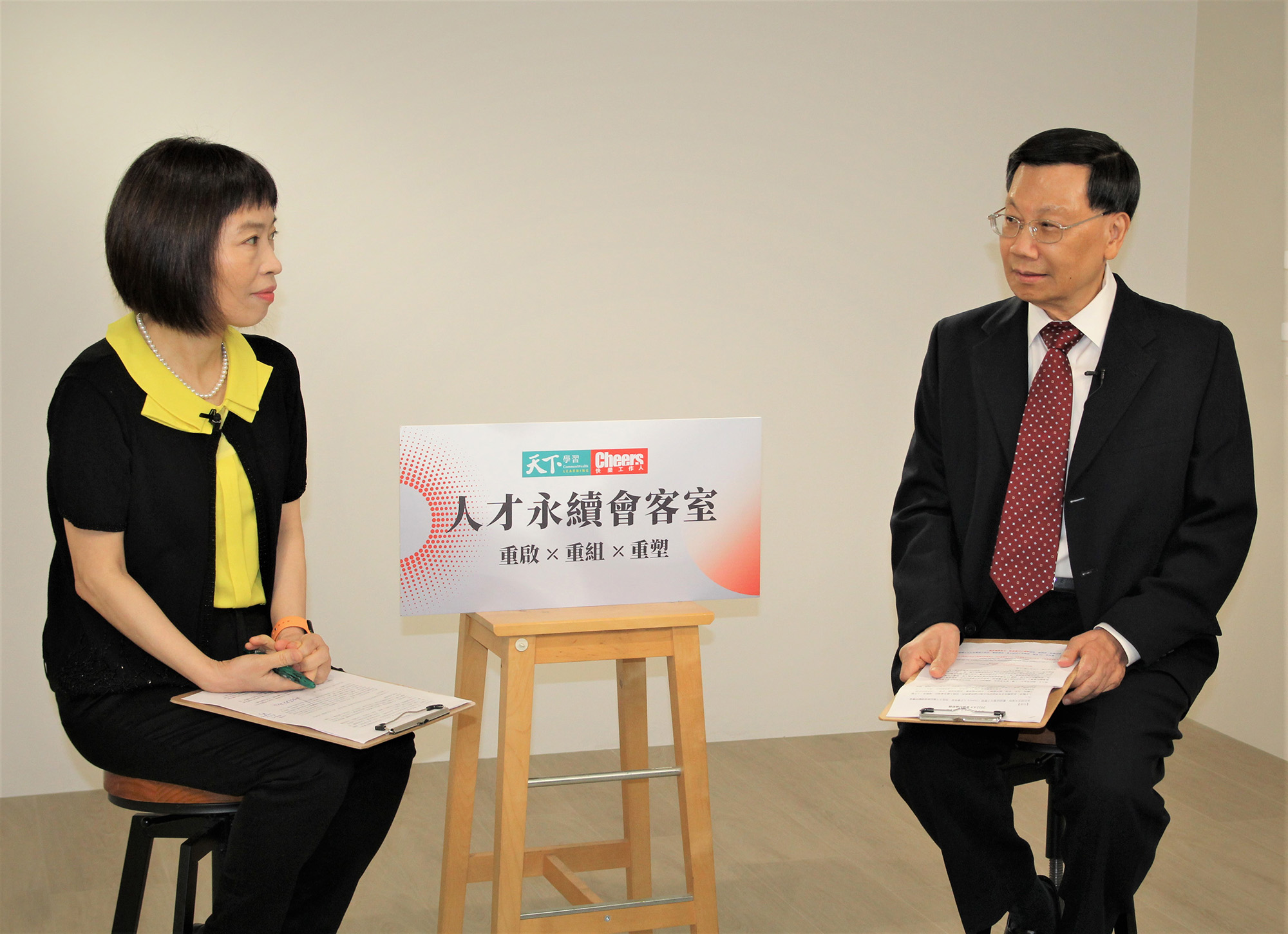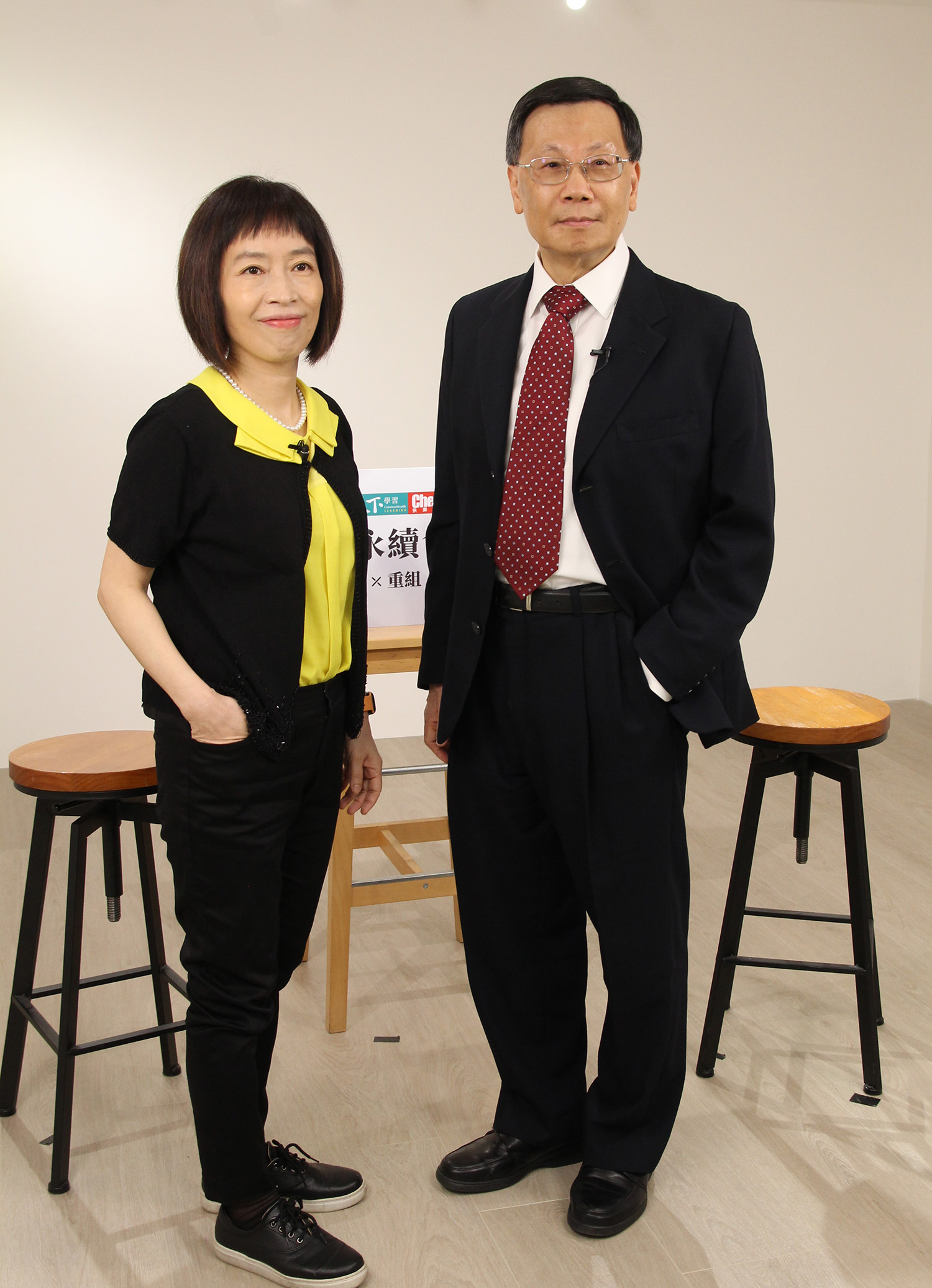President Jeffrey J.P. Tsai of Asia University was interviewed by Creative Director Fu-Yuan Hsiao Cheers Magazine. When he was asked about how the leader of a university responsible for talent cultivation should respond to the global talent shortage, President Tsai responded that Asia University is dedicating its efforts to becoming a world-class university and developing digital competence, competencies (soft skills) that will last a lifetime, and ensuring they will not be displaced in the era of AI.
“Cheers Talent Reception Room” is an interview program produced by Cheers Magazine that focuses on how schools, enterprises, and governments should respond to an unprecedented talent crisis, the most severe global labor shortage in the past 22 years in the post-pandemic era. How do enterprises manage sustainability talent? How do higher education institutions cultivate interdisciplinary talent? The program has invited the minister of labor, representatives from major enterprises, and university presidents to discuss the latest perspectives on talent.
|
Image: President Jeffrey J.P. Tsai of Asia University (right), during an interview with “Cheers Magazine Talent Reception Room,” mentioned the development of abilities that students can take with them for a lifetime while they are in college. |
President Tsai said that Asia University was established with the intention of creating a different university, and is positioned as a world-class comprehensive university, in hopes of contributing to talent cultivation for industries, Taiwan, and the world. Asia University has been developed with the same spirit as Harvard University to pursue excellence, humanities, and care since it was founded, and it is apparent from Asia University’s vision, its track record on innovation governance, and sustainability. Talent cultivation requires gifted candidates to be recruited, especially for a new university. A keen vision is necessary to attract good teachers. The most important asset of a university is its faculty members and students, and it is hard to recruit outstanding Taiwanese and foreign scholars and implement educational practices. This is a vision, a philosophy; it takes international thinking and also the spirit of innovation.
Asia University was established 21 years ago; President Tsai was selected as one of the top ten most outstanding presidents; Asia University was selected by the Ministry of Education for teaching excellence for 12 consecutive years and was selected by Cheers Magazine as one of the Top 20 universities for 8 consecutive years. Asia University not only achieved outstanding performance in Taiwan but also in major international rankings, ranking 116th in Asia and 2nd in Taiwan in the Young University Rankings, which ranks universities that have been established for less than 50 years, of Times Higher Education. Principal Consultant Hsiao thus asked President Tsai what did Asia University do right to achieve such outstanding performance?
“It is not the strongest of the species that survive, nor the most intelligent, but the one most responsive to change,” said President Tsai, quoting biologist Charles Darwin when describing the pursuit of excellence and courage to engage in innovation by “Resilient AU.” He observed that, internally, Asia University is actively increasing the international mobility of its faculty members and students and enhancing their overseas experience and learning, so as to facilitate their employment worldwide.
|
President Jeffrey J.P. Tsai of Asia University (right) was interviewed by Creative Principal Consultant Fu-Yuan Hsiao of Cheers Magazine’s “Cheers Talent Reception Room. |
President Tsai said that Asia University aims to improve its world university ranking, establish an international academic network with overseas sister universities, and increase the number of international students recruited. Asia University has formulated short-term as well as long-term strategies to increase the quantity and quality of students, internationalize its campus, and create a co-learning environment for local and international students to learn from each other. He stressed that the execution of plans is very important and there are many good ideas, but the ideas must be realized to bring about change. The team is working together as one to gradually achieve its KPI, growing together to pursue excellence and realize Asia University’s vision.
Principal Consultant Hsiao then mentioned that higher education has been affected by several tsunamis in recent years: low birth rates, disruptive innovation of online courses, and the impact of the pandemic on campus life, and asked President Tsai his opinion and how the university should accommodate these changes.
President Tsai answered that, in an era of uncertainty, it is necessary to make adjustment along with changes in industry demand. In terms of transformation due to low birth rates, it is necessary to become 1. Differentiation-oriented: Use differentiation to highlight features of the university, colleges, and departments. 2. Market-oriented: Adjust and add departments and institutes based on what industries need. 3. International-oriented: Step up international student recruitment, create a diverse and rich international learning environment on campus, and recruit international scholars and students. Asia University is organizing international conferences, international online education exhibitions, international online summer and winter schools, and international online learning exchange. Asia University has the so-called “318 internationalization strategies”, allowing students to study abroad via 8 channels, and ranked 1st in the country in subsidy amount and number of students studying abroad under the Ministry of Education’s Long-term Study Abroad Program for 4 consecutive years.
“Never let a good crisis go to waste” said President Tsai, who was quoting Prime Minister Churchill of the United Kingdom, when describing the digital transformation brought on by the pandemic. He said that Asia University required the digital empowerment of faculty members, enhancement of students’ digital literacy, and quickly took charge of learning quality after the pandemic. With regard to learning resources: software and hardware are in place (e.g. online learning platform TronClass, AI, smart classroom, metaverse learning space, and software and hardware installation). With regard to teachers: digital teaching empowerment activities were organized for teachers, and an e-learning consensus camp is organized each semester; a digital teaching plan contest was organized to reward innovative digital teaching strategies. As for courses: students are encouraged and receive subsidies to take digital courses from world-class universities, and courses on net zero emissions, sustainable development, metaverse, NFT, and cloud are offered to promote cross-disciplinary self-learning.




